Are you eating enough protein? Signs of a possible protein deficiency and how you can integrate more protein into your diet
Are you eating enough protein? Signs of a possible protein deficiency and how you can integrate more protein into your diet
Dear readers,
Protein is an important nutrient that our body needs every day. Often underestimated, a lack of protein can lead to various health problems. Are you sure you're getting enough protein? Here are some signs that could indicate a possible protein deficiency:
Frequent tiredness and lack of energy: Do you often feel tired and lacking in energy? This could be due to a lack of protein, as it plays an important role in providing energy.
Brittle nails and thin, weak hair: our nails and hair are made of keratin, a protein. A deficiency can therefore impair the structure and lead to weak hair.
Long recovery times after exercise: Protein is essential for muscle recovery. If it takes you a long time to recover from a workout, this could be an indication of a deficiency.
Frequent colds and a weak immune system: proteins are necessary for the production of antibodies. A deficiency can weaken your defenses.
Constant hunger and cravings for sweets: If you are often hungry despite a sufficient calorie intake, this could be due to a lack of satiating proteins.
Mood swings and irritability: Proteins are important for the production of neurotransmitters that regulate our mood.
Protein also plays an important role in hormone balance:
Blood sugar regulation and feeling of satiety: protein-rich meals help to keep blood sugar levels stable and reduce cravings.
Liver and digestive function: Amino acids from proteins are essential for healthy liver function and the breakdown of hormones such as oestrogen.
Sex hormone production and cycle health: Proteins are building blocks for hormones such as FSH, LH and TSH, which control the production of oestrogen, progesterone and testosterone.
Thyroid function: Sufficient protein intake is required for the production of the thyroid hormones T3 and T4.
8 simple tips for more protein in your diet
Add 2 tablespoons of hemp or linseed to your smoothie: these seeds are rich in protein and healthy fats.
Pimp your salads with spinach, artichokes or broccoli: these vegetables are not only rich in nutrients, but also a good source of protein.
Go for pasta made from chickpeas or lentils: these alternatives to conventional pasta are higher in protein and also gluten-free.
Use hummus as a protein-rich dip: Whether ready-made or homemade, hummus is a delicious and healthy source of protein. Here is a simple recipe: Strain, rinse and dry a jar of chickpeas. Chop two cloves of garlic, add to the chickpeas with the juice of half a lemon, three tablespoons of olive oil, three tablespoons of tahini, half a teaspoon of salt, pepper and cumin. Puree everything until you have a creamy mixture. Optionally garnish with parsley, olive oil and paprika powder.
Make yourself delicious protein snacks: homemade energy balls with nuts, seeds and dried fruit or simply a few almonds are perfect snacks.
Start the day with chia pudding: Chia seeds are an excellent source of plant-based protein.
Try recipes with plant-based protein sources: Beans, quinoa and tempeh are not only delicious but also rich in protein.
Spice up your yogurt or smoothie with protein powder: Use our "Shape Up" protein powder to increase your protein intake. With the discount code Olivia1204 you get 10% off your order!
Conclusion
A balanced protein intake is essential for your health and well-being. Incorporate these simple tips into your daily routine and reap the benefits of a high-protein diet. Order our "Shape Up" protein powder today and get started!
Your team from Shape Up
